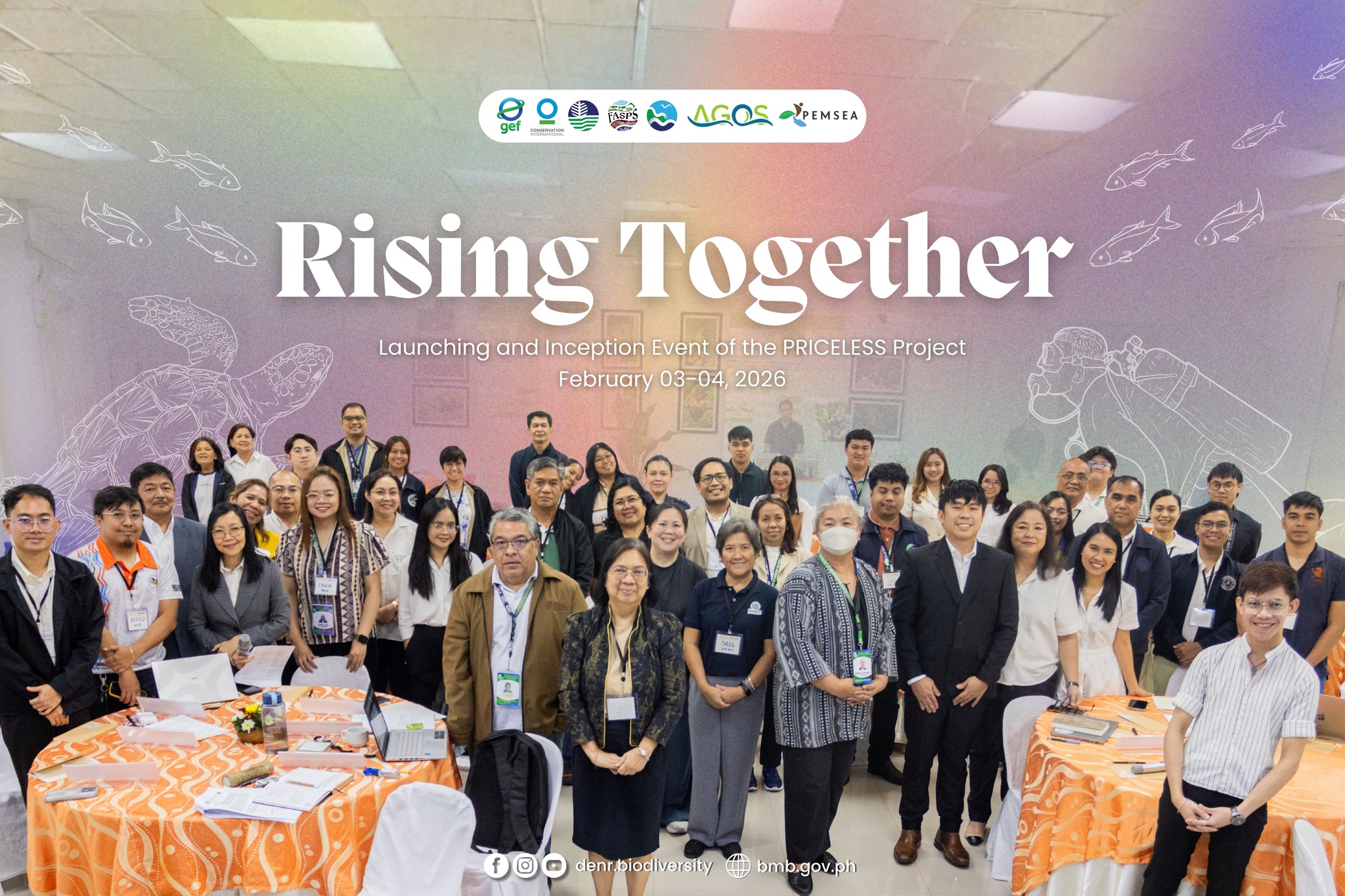2018 East Asian Seas Congress: international conference to discuss sustainable solutions for healthy oceans, people and economies
Tuesday, 27 November 2018

ILOILO CITY, PHILIPPINES—Some 1,000 local and international delegates attended the 2018 East Asian Seas (EAS) Congress, a triennial event widely recognized as a platform for dialogue, knowledge-exchange, strategic action, partnership building and cooperation in support of the region’s common vision of sustainable development of the Seas of East Asia. The theme for this year’s conference is “25 Years of Partnerships for Healthy Oceans, People and Economies: Moving as One with the Global Ocean Agenda.”
This is the second time that the Philippines, through the Department of Environment and Natural Resources (DENR), is hosting the Congress in collaboration with the United Nations Development Programme (UNDP), Global Environment Facility (GEF), Partnerships in Environmental Management for the Seas of East Asia (PEMSEA) and the provincial and city governments of Iloilo.
DENR Secretary Roy A. Cimatu said the EAS Congress is an “opportune time to strengthen partnerships in the region” through the sharing of initiatives and best practices on integrated coastal and river management (ICM) that will help manage and protect marine life and promote a blue economy.” Cimatu added that “a blue economy does not only consider business revenues. More importantly, it considers how the proper use and care of marine resources can provide employment and food security to many people.”
PEMSEA Executive Director Aimee T. Gonzales emphasized the value of the EAS Congress to the Philippines. “This event is an avenue to demonstrate Philippine leadership and efforts in sustainable coastal and ocean development at the local and national level, and Philippine contributions to the UN SDGs,” she said.
Gonzales added that the EAS will enable the Philippines to share its initiatives, achievements and challenges through the conference sessions, and develop new partnership initiatives with
delegates from within and outside the region. Since 63% of the attendees are international participants, the EAS can also contribute to the local economy and showcase the culture and islands of Iloilo and Guimaras.
Iloilo Governor Arthur Defensor Sr. said that it is a “great privilege” to host the EAS Congress since Iloilo is a “fitting setting to the EAS Congress’s theme of celebrating partnerships made in the past 25 years and to bridging collaborations towards the future of the sustainable development of the East Asian Seas region.”
Key features of the EAS Congress which will run from November 27 to 30, 2018 include: Ocean Talk (daily plenary session with global experts), Sea Exchange (dialogues with partners), Partnership Hubs, the high level Sixth Ministerial Forum, PEMSEA Network of Local Governments Forum and the Fifth EAS Youth Forum.
Launch of the Regional and National State of the Coasts (SOC) Report
A highlight during day 1 of the EAS Congress was the launching of the Regional and National State of the Coasts (SOC) Reports, with a blue economy theme. The East Asian Seas are under increasing pressure from the growing range and intensity of economic activities and the changing environment and climate. The blue economy refers to a sustainable ocean-based economic model that harnesses ocean resources for economic growth, innovations, improved livelihoods and jobs, while preserving the health of oceans and ecosystems.
The SOC Reports emphasize the contribution of the ocean economy to national economies, and welfare.
• An initial estimate of the ocean economy of 10 countries in the EAS region is around US$1.4 trillion in value added in 2015.
• Around 50 million are employed in the ocean industries.
• The ocean also generates services that are not usually quantified in the national income accounts. For eight countries, the total estimated value of coastal and marine ecosystems is around $681 billion.
To ensure the long-term potential of oceans, the countries in EAS Region are moving away from the traditional ocean economy and business-as-usual approach. Blue economy is driving habitat and biodiversity conservation, pollution reduction, and climate resiliency, as people and industries recognize their reliance on healthy oceans. Climate-smart aquaculture for food security, ecotourism for livelihood, and green ports for climate action are transforming the ocean economy. Innovations and emerging industries are taking place – ocean energy for renewable energy, desalination and treated wastewater for water security, and marine biotechnology for new medicines. The SOC Reports highlight these blue economy initiatives and the lessons learned. While there is still a long way to go, the momentum has already started in the region for the ocean agenda.
For more information on the 2018 EAS Congress, visit: http://eascongress2018.pemsea.org/.




